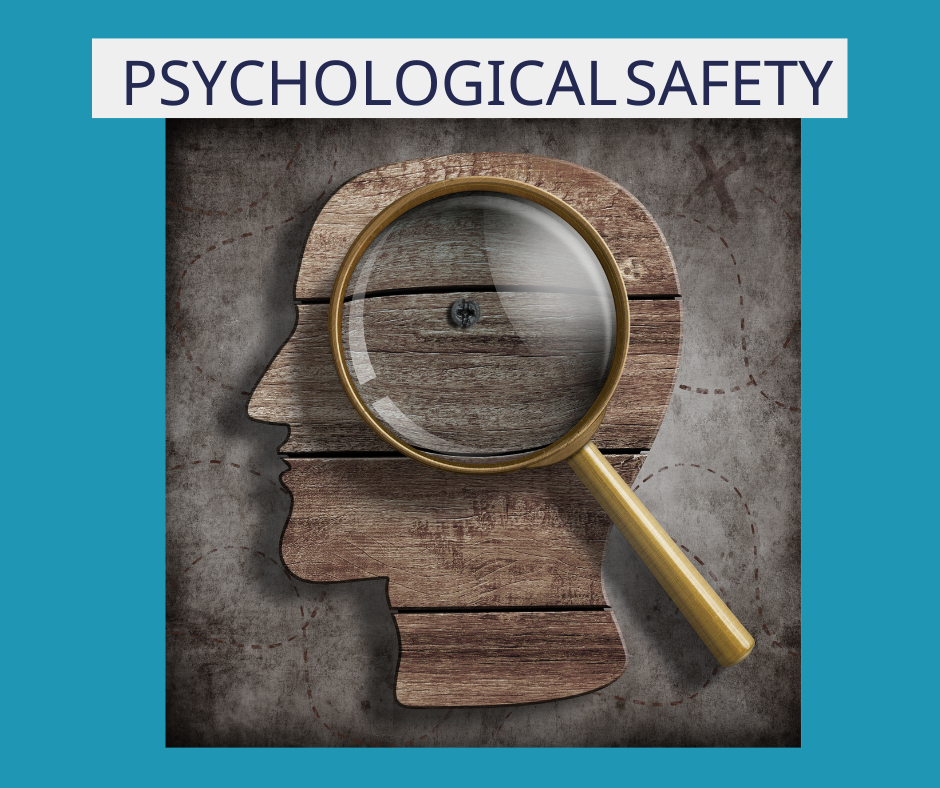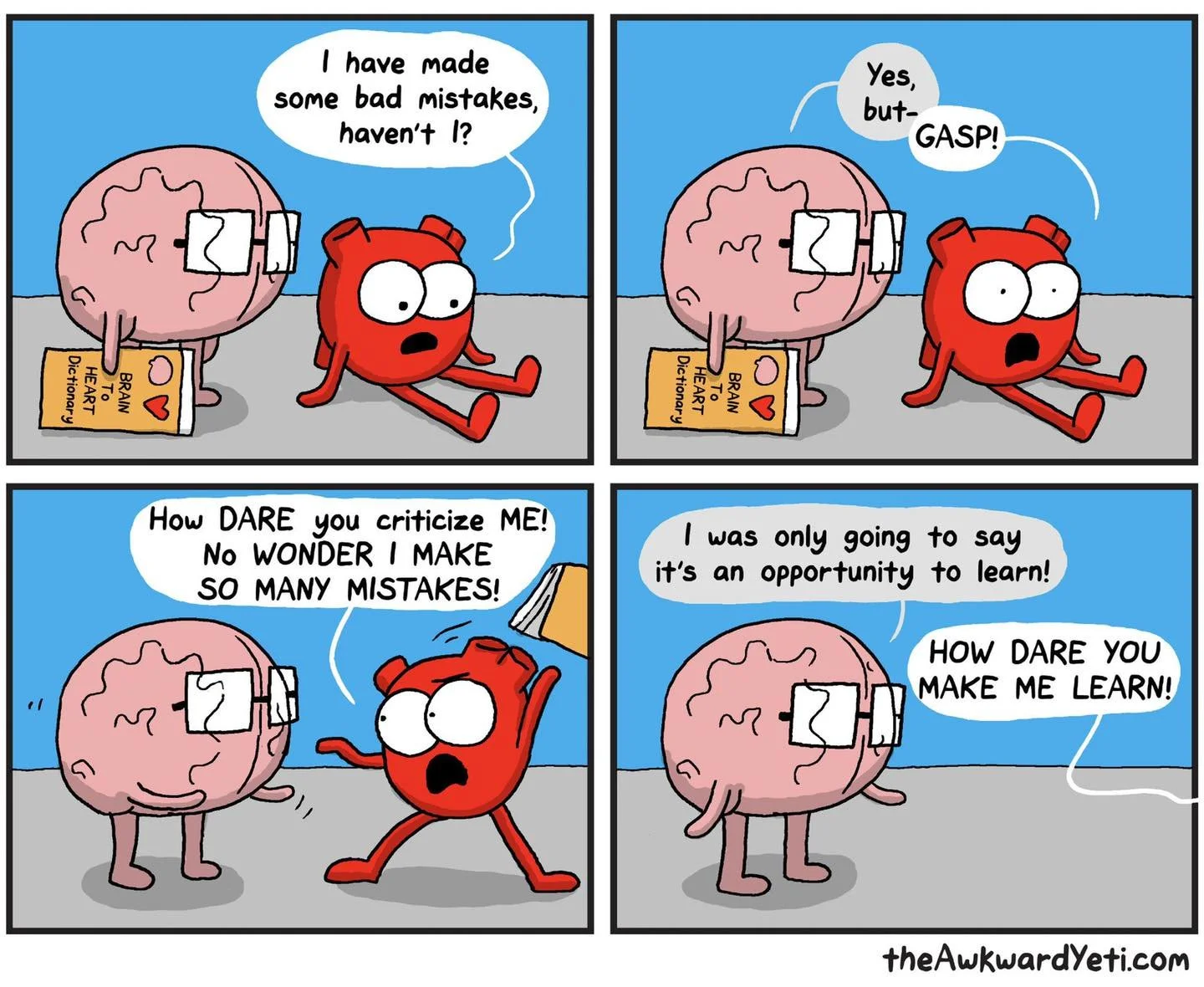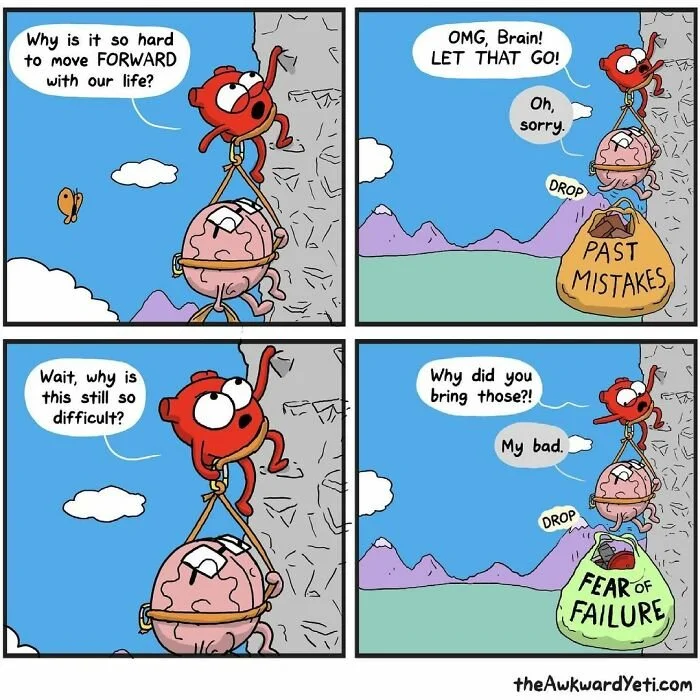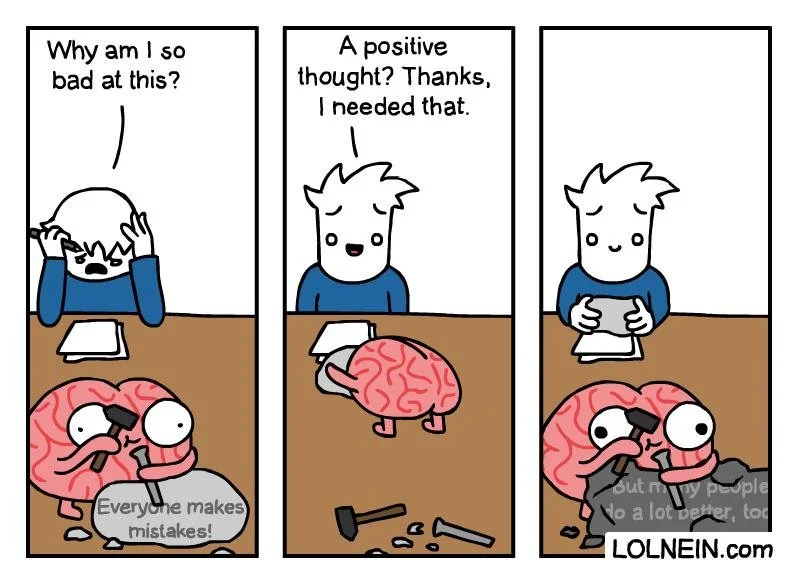A few days ago, I screwed up at work in a very big way.
I won’t tell you the details of my error, but suffice to say that it was visually impactful with a time consuming and expensive clean-up.
The sort of boo-boo that when you realise what you’ve done, you just stand there thinking ‘oh, sht. Sht sht sht sht sh********t.‘
Then your mind starts to run somersaults.
Do you… endeavour to cover it up? Tempting. Extremely tempting. But in this case, (and I would say usually this is the outcome of cover-ups) the long-term ramifications of a cover-up could have been worse than the original problem.
Or… gulp… ‘fess up, face the music, and get some proper help.
I chose the latter. This involved a 9pm phone call with my organisation’s Health and Safety Manager, starting with the words ‘I’ve made a mistake. A very big mistake. And now I need your help.’
Artist credit: Chuck Ingwersen, aka Captain Scratchy
You might think that the choice made here is a reflection of the individual. Honest or dishonest. Courageous or conniving.
Not so.
Feeling able to seek help, to admit mistakes, to speak up when something is wrong in the workplace, is less a reflection of the person doing the speaking and more of a reflection of whether their working environment enables them to feel safe to speak.
This is what we call Psychological Safety.
What is Psychological Safety?
Speaking up at work is a risk. In a nutshell, Psychological Safety is being comfortable to show up and to speak up without fear of negative consequences.
The term was coined by Harvard Business School Professor Amy Edmonson, who describes Psychological Safety as “a shared belief that the team is safe for interpersonal risk-taking.”
Ask yourself this - if one of your team members screwed up, would they feel confident that they could let you know, without fear of repercussions? Now dial-up the magnitude of the screw-up.
Maybe they feel safe enough to let you know they’re walking in ten minutes late because they overslept rather than because they were ‘stuck in traffic.’ But, lets say they made a far larger error that resulted in a big financial loss, or potential failure of a big project or damage to stock or equipment. Is that same level of safety still there?
Artist credit: Is there a better workplace comic? Dilbert by Scott Adams of course
Researchers emphasise a degree of ‘losing face’ (for one example, see William Kahn’s 2017 study in the Academy of Management Journal), or the consequence of negative self-image. Humans don’t want to look bad. In a group, we like to fit in. Being the loudest, the contrary or difficult one, the only one with a different idea or the person who f*cked up creates a sense of anxiety in most people. Psychological Safety reduces that anxiety.
Why does it matter?
Psychological Safety:
Increases employee engagement thereby increasing performance
Improves retention and reduces employee turnover
Improves health and safety thereby reducing risk
Improves inclusion, therefore can improve diversity
Improves innovation, by creating a safe space for new ideas to be heard
Increases levels of initiative
I can provide studies to back each of these claims (several are linked in this article by Dr. Jacinta Jiménez). But let’s just think about this at a personal level for a moment. Think back to a time when you could really just be yourself. For many people (by no means all of us!) that might be at a family event, hanging out with your siblings. People who just get you. It could be spending time with an old friend. The type of group setting where you feel comfortable to sit in silence, comfortable to throw out a new idea, comfortable to wear whatever you like without judgment. Comfortable to say ‘oh my goodness, guess what I did the other day’ and then regale them with your screw up without any fear of humiliation.
Now imagine you felt that way at work. Wouldn’t that be great? Think of all the ‘crazy ideas’ you could have a crack at. Imagine getting something wrong and simply being able to spell it out and get help to fix it from your leader and your teammates, knowing that you are not a pariah for messing up, you are simply a flawed human being like the rest of us.
Artist credit: More Dilbert by Scott Adams
Psychologically safe environments foster creativity and allow for potential problems to be easily recognised and addressed.
How can leaders create Psychological Safety?
Psychological Safety starts at the top, and takes time to build. But, anyone can make a contribution to the culture of Psychological Safety on their team. As a mid-level leader, you can create your own oasis of Psych Safety in your immediate team even if the wider culture is lacking.
A McKinsey Global Survey conducted during the pandemic found that Psychologically Safe workplace cultures were positively impacted by Consultative and Supportive vs Authoritarian leadership.
In essence, this means thinking about how you listen and react to your team. Treat them with empathy. Treat them as people. Ask them for their input and show them that you value their contributions.
Once this foundation of positive team climate is in place - and only then - McKinsey found that ‘Challenging Leadership’ behaviours can further enhance Psychological Safety. ‘Challenging leadership encourages employees to do more than they initially think they can.’
A challenging and supportive leader will ask employees to reconsider their assumptions and come up with new ideas and new ways of doing things and then when they do so, will show that their contributions are valued even when they don’t work out.
In order to expect innovation, you need to be prepared to allow for failure and you need to make your team feel safe to fail.
Artist credit: For all things head and heart - The Awkward Yeti by Nick Seluk
Are you a team member who wants to create Psychological Safety? Take the same approach. Bite the bullet and admit your mistakes. Tell other people it’s okay when they make a mistake. Encourage your colleagues new ideas. Include people who may have less of a platform than you - or who have more to lose than you - by vocally supporting their ideas.
How does Diversity and Inclusion fit into this?
An inclusive working culture is a culture where people can safely bring their whole selves to work. This includes their gender and sexual identity, their race and ethnicity and their religious or other belief systems, their social class, age, body type and any other personal factors that are a part of their identity.
In an environment of Psychological Safety, individuals from minority backgrounds are more likely to feel welcomed, included, and safe to express themselves.
This is morally critical and also good for business - research shows a positive link between diversity in workplaces and economic performance. It is also good for worker wellbeing and positive mental health; and over time can reduce the incidence of depression, anxiety and burn-out among your team members.
How can you contribute?
Team members from minority backgrounds have more to lose than team members from majority backgrounds (in that they already face higher barriers to career progression). They likely also have a history of experiencing reduced safety in simply navigating their way through their world. Therefore, they may have greater or simply different needs in terms of feeling Psychologically Safe.
Everyone has different needs in regards to feeling Psychologically Safe, because we all bring different perspectives and histories to the table.
Artist credit: More The Awkward Yeti by Nick Seluk
How should you approach this? According to Dr Jummy Okoya FCMI, a wellbeing psychologist and expert on organisational and leadership development, create a new golden rule. ‘Instead of treating people how you want to be treated, treat them how they want to be treated’. Be humble, and if you are not sure how best to support a diverse member of your team, ask them. Do your research on inclusion issues and get help from organisations such as Diversity Works NZ.
Did you this article make you think? Intrigued to know the level of Psychological Safety in your organisation, and how you can make meaningful, strategic improvements?
Contact us for a Psychological Risk Management assessment.
Or, check out one of our virtual workshops where you can learn all this good stuff and more from the comfort of your home office (or your sofa, if you prefer).
The final word: You might be interested to know that this blog was inspired by a recent news article my other half discovered in the NZ Herald (he’s a Brit, but follows Kiwi news on Reddit, and then sends me the best bits).
Did you know that although it is an offence to sh*t in public in NZ, if you can prove you took steps to ensure that no one saw you, you can weasel out of a fine? This law is currently under debate (due to the levels of public excrement getting a bit out of control).
So, essentially, Psychological Safety is whether or not you feel ok about bringing your sh*t to work.
Artist Credit: LOLNEIN by Vincent Kunert
Thoughts? Comments? Please send them to me. I genuinely would love to know what you think, be it positive, negative, or just a suggestion for what to write about next time. You can catch me on ngaire@glia.co.nz or https://www.linkedin.com/in/ngairewallace/.
Blog by Ngaire Wallace







